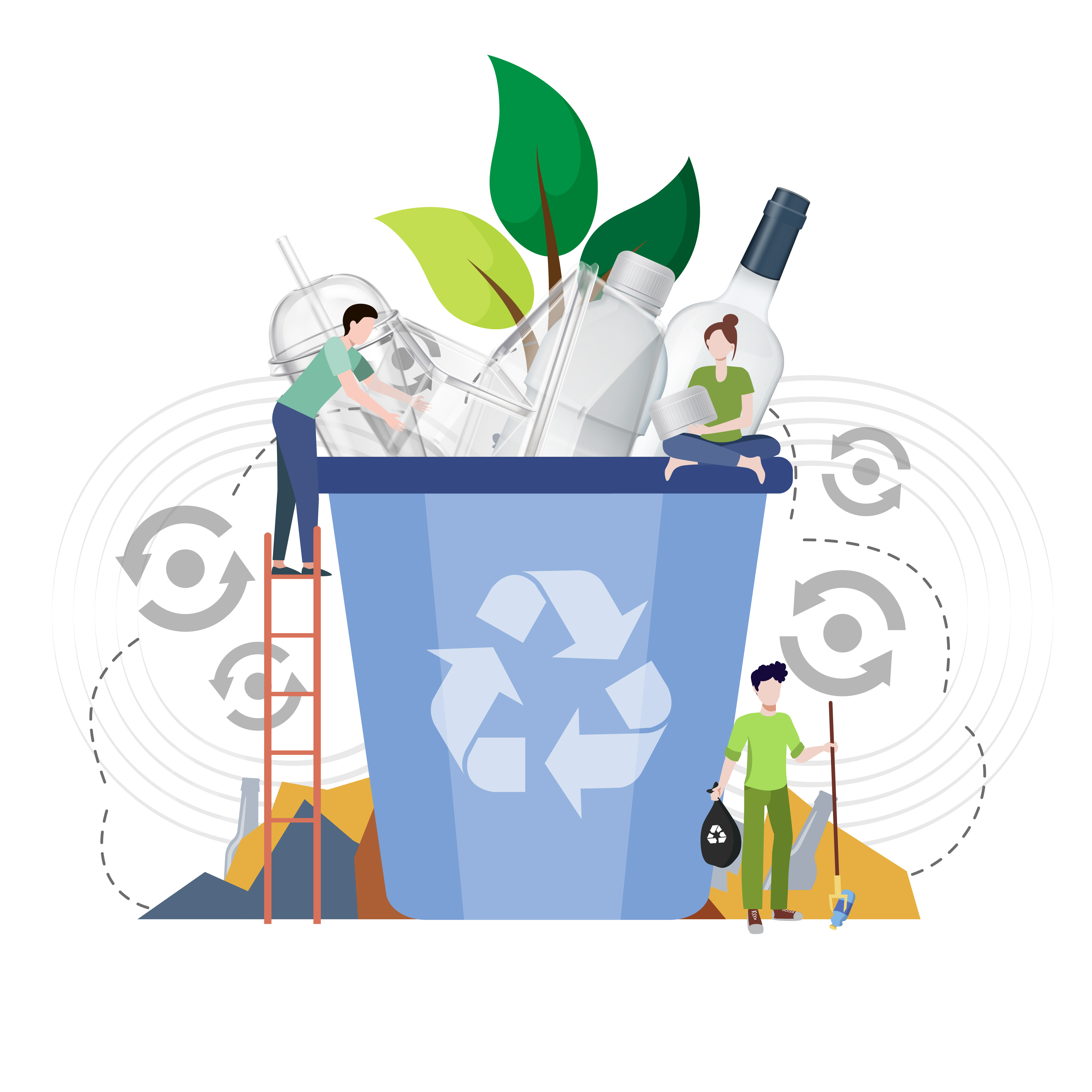Amidst calls for improved environmental performance, economies are faced with the environmental impacts of a linear approach (take, make, dispose) to production and consumption. Increasing prices of materials, overconsumption and subsequently, a higher volume of waste generated are typical characteristics of the linear economy’s path that most countries are taking. Circular economy (CE) focuses on maximizing the life cycle utility of resources. It is designed to efficiently recirculate the raw material in a closed-loop, through minimization of virgin material use and maximization of waste recovery as secondary raw materials and alternative energy sources. Circular economy gives a new perspective of looking at the plastics as a resource rather than waste. The implementation of circular economy approaches had resulted in societal, environmental and economic benefits across various parts of the world including China, Japan, Europe. The success stories have a stream of processes including topdown and bottom-up approach in their implementation. The “Top-down” approach involves policy intervention and “Bottomup” approach involves capacity building, people’s participation, promotion and use of appropriate technologies and private sector participation. It is the combination of these two approaches and successful implementation of circular economic practices help in realising the vision of a circular economy come true in plastic waste management.
The webinar would elaborate on the two aspects:
1. The top-down approach of plastic waste management applying the principles of circular economy and successful implementation in different countries
2. The bottom-up approach focusing on capacity building, people’s participation, responsive private sector participation.
The two different approaches will give different views of looking at the problems of current plastic waste management holistically and will provide overall management of circular economy principles with case studies.
 We cannot deny that plastics are really useful and make our life easier but that only considers the ‘use’ part. Plastic pollution is currently a major concern due to its effects on the environment, animals and also humans, for instance, marine plastics and food contamination. Many million tons of used plastics leak into the environment in the form of micro plastics and macro plastics at every stage of plastic life-cycle. Thus, only the implementation of plastic waste management and recycling is not enough and not considered as circular economy. This webinar is going to tell you about the plastic life-cycle and how to tackle with the problems at each stage. Organizations and companies are going to present their business models of how they will handle the challenge. To manage plastic waste using circular economy as a tool, the whole value chain needs to be taken into account. Every stakeholder, mainly producers, consumers, and governments, face challenges on their own specific issues, for example, recycled plastic producers has to compete with the virgin plastic materials and oil price. Moreover, stakeholders might not walk together at the same pace, which leads to difficulties in achieving the goal. Therefore, interdisciplinary action is one of the keys to filling the gap of circular economy.
We cannot deny that plastics are really useful and make our life easier but that only considers the ‘use’ part. Plastic pollution is currently a major concern due to its effects on the environment, animals and also humans, for instance, marine plastics and food contamination. Many million tons of used plastics leak into the environment in the form of micro plastics and macro plastics at every stage of plastic life-cycle. Thus, only the implementation of plastic waste management and recycling is not enough and not considered as circular economy. This webinar is going to tell you about the plastic life-cycle and how to tackle with the problems at each stage. Organizations and companies are going to present their business models of how they will handle the challenge. To manage plastic waste using circular economy as a tool, the whole value chain needs to be taken into account. Every stakeholder, mainly producers, consumers, and governments, face challenges on their own specific issues, for example, recycled plastic producers has to compete with the virgin plastic materials and oil price. Moreover, stakeholders might not walk together at the same pace, which leads to difficulties in achieving the goal. Therefore, interdisciplinary action is one of the keys to filling the gap of circular economy.